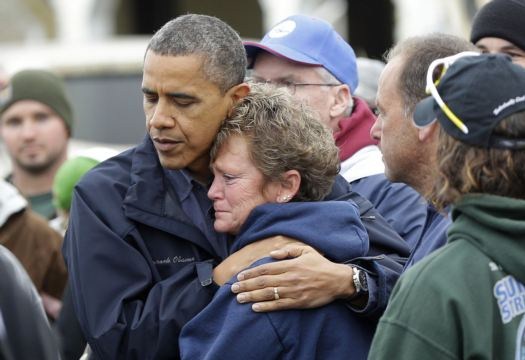Older people often care passionately about the future, even if--and maybe especially if--it is not a future we are likely to share. We care about the future of the children we love, and the young in general. We care about legacy, about the world we will leave behind, and its future.
There are plenty of reasons why older Americans should vote in their own interests to reelect President Obama, and for Democratic candidates to the Senate and House. Democrats created Social Security and Medicare, and especially these days, only they can be trusted to protect them. As much as they try to obscure their positions now, Mitt Romney and Paul Ryan want to end Medicare as we know it, and eventually privatize Social Security. They also threaten Medicaid, which many older Americans will need for longterm care. It is in our interests--and the interests of our families, we don't want to impoverish just to take care of us--to support these programs by voting for President Obama.
But we care about more than our own future. Some look at the future of the country in financial terms. Romney and Ryan say they worry about the burden of debt on future generations. Yet their proposals only make that debt much larger. They can't possibly admit the truth: that the federal deficit has been going down under President Obama, despite the Great Recession and the extraordinary programs needed to get America's economy re-started.
President Obama supports the kind of help for students of all ages to obtain the highest education they can, the kind of future-oriented industries particularly in energy, and other efforts to create a better future, with more opportunity. For everyone, not just the wealthy and privileged.
He does not want to create social turmoil and individual pain by going back on America's promise of equal rights, of womens rights, of a sensible health care system.
The future was much on the mind of the politically Independent Mayor of New York, Michael Bloomberg, when he endorsed President Obama last week:
When I step into the voting booth, I think about the world I want to leave my two daughters, and the values that are required to guide us there.
The two parties’ nominees for president offer different visions of where they want to lead America. One believes a woman’s right to choose should be protected for future generations; one does not.
That difference, given the likelihood of Supreme Court vacancies, weighs heavily on my decision. One recognizes marriage equality as consistent with America’s march of freedom; one does not. I want our president to be on the right side of history.
One sees climate change as an urgent problem that threatens our planet; one does not. I want our president to place scientific evidence and risk management above electoral politics.
Presidents Bill Clinton and Ronald Reagan both found success while their parties were out of power in Congress -- and President Obama can, too. If he listens to people on both sides of the aisle, and builds the trust of moderates, he can fulfill the hope he inspired four years ago and lead our country toward a better future for my children and yours. And that’s why I will be voting for him.







